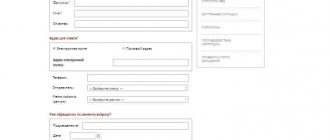Any sale of products and other goods must be carried out in accordance with current legislation. On the one hand, every citizen has the right to sell his property without a store. But at the same time, he cannot implement things anywhere.
Unauthorized trade in unidentified places, as well as other violations in this direction, are punishable from the standpoint of both administrative and criminal legislation. Tax sanctions are also possible.
What is covered by unauthorized trade?
First of all, you need to understand the difference between a simple sale of an object and trade carried out on a regular basis. Any citizen has the right to sell things that belong to him. At the same time, it is not necessary to do this through a consignment or other store - the transaction can be carried out directly on completely legal grounds. The agreement can be either oral or written.
You can sell anything that is not excluded from circulation. However, such activities should not be aimed at systematically making profit. Otherwise, it is entrepreneurial, which requires a special status.
Moreover, any sale of goods must not violate other legal norms. This also applies to the place of trade. You cannot put up a sales tent where it is not provided without obtaining the appropriate permit. This applies to both one-time sales of goods by an individual and business activities.
In general, unauthorized trade refers to the sale of goods for the purpose of making a profit in violation of a number of established rules regarding the place of trade and conditions. As well as the status of the person who is engaged in the relevant activity.
In addition, illegal trade can be understood as any violation of the relationship between the seller and the buyer. To this concept we can add the sale of prohibited goods and the absence of additional permits (licenses).
Is outdoor trading allowed for individual entrepreneurs?
Issues related to street trading are regulated by local authorities. It is not banned everywhere. But you will have to obtain permits for this. But it will not be provided for every group of goods. For example, perishable food products can only be sold on the street if the seller can ensure they are stored at the required temperature.
Illegal sale of goods
The most common violation is the sale of goods in the absence of special status. A person who regularly engages in trade must open a legal entity or obtain the status of an individual entrepreneur.
There are some exceptions to the rule. For example, you can sell your personal belongings without opening an individual entrepreneur. This does not relieve a person from tax obligations if the activity has generated profit. It is also allowed to sell surplus from a personal plot (but in specially designated areas).
It is not difficult to obtain entrepreneurial status. You just need to register. If we are talking about an individual entrepreneur, then you don’t even need an office. An individual entrepreneur is a simple individual who has received permission to regularly make a profit through a specified activity.
You should choose the right OKVEDs - special codes that determine the types of permitted activities. Don't be afraid to add extra ones - there can be as many as you like. There is no danger, there is no additional reporting until the activity is actually carried out.
What are the responsibilities?
Violation of current legislation entails the application of sanctions. The specific punishment depends on the type and severity of the violation:
- Trading without the status of an individual entrepreneur or not on behalf of a company is punishable on the basis of. Fine – from 500 rubles to 2000 rubles.
- Lack of a license or permit – paragraph 2 of Article 14.1 of the Code of Administrative Offenses of the Russian Federation. Fine – up to 2,500 rubles with confiscation of manufactured products. Officials and firms will receive a heavier fine.
- If the act caused major damage to citizens and legal entities, or led to the receipt of large income, it is applied. Fine – from half a million rubles, compulsory labor or arrest for up to six months.
Sanctions for trading in unauthorized places are determined by the legislation of the region in whose territory the offense is being committed. This is usually a fine ranging from several hundred to several thousand rubles.
For more information about what liability is provided for illegal business activities, read this article >>
How to avoid getting a fine
To avoid receiving fines and other unpleasant punishments for offenses, you need to carefully study the legislation. You will need to understand what requirements are put forward to the entrepreneur.
Individual entrepreneur registration process
Any business begins with choosing a form of ownership and registration. You will need to register your activities as an individual entrepreneur or LLC. To do this, you need to contact the Federal Tax Service. Next, you need to find out whether licensing is required. You can find the necessary information in the Federal Law “On licensing of certain types of activities.”
When working directly, it is necessary to comply with the standards put forward by the tax service, Rospotrebnadzor and other authorities. If a person violates their requirements when conducting business, he will be required to pay a fine. Only compliance with the laws will help you avoid receiving penalties.
Where to complain
Such offenses often go unpunished. If a citizen wants to stop illegal activities, he has the right to file a complaint:
- to the police if we are talking about trading in the wrong place. You can contact the district police officer or any department, then the case will be transferred according to jurisdiction and territoriality;
- to the administration of the municipality when trading in the wrong place. The fine may be issued by the municipal inspector. He will also conduct an inspection.
- to the Federal Tax Service, if a person carries out trade without registering as an entrepreneur, or evades paying taxes;
- to Rospotrebnadzor in case of violation of trade rules.
You can contact the relevant authority either in writing or by telephone. However, a written statement will be more effective.
Read more about how to file a complaint against an individual entrepreneur here >>
How to conclude an agreement with the administration for the placement of a street retail outlet
In the language of the law, a street point is called a “non-stationary retail facility” or NTO. These are the same kiosks, carts, tents, trays, trailers, auto shops and counters.
In each city, local authorities approve the layout of non-stationary retail facilities . The scheme is being developed so that retail outlets are distributed evenly throughout the city, do not interfere with transport and pedestrians, and do not spoil the appearance of the city. At least 60% of points must be given to small and medium-sized businesses. The scheme is posted publicly on the Internet. For example, this is what the NTO scheme for the Central District of Moscow looks like.
To obtain a place in the NTO scheme, an entrepreneur participates in an auction electronically. You can find out which places in the city are available and are up for auction at the local administration. The department that deals with scientific and technological development is called differently in each city. For example, in Moscow this is the Department of Competition Policy. In Perm - Department of Economics and Industrial Policy. Another list of NTOs put up for auction is published on the administration’s websites.
To participate in the auction, an entrepreneur submits an application, pays a deposit and sends documents to the administration. The application form and the exact list must be obtained from them.
If the entrepreneur wins the competition, an agreement is concluded with him for the placement of a non-stationary retail facility and a certificate of placement of a non-stationary retail facility is issued. A certificate is the very document that confirms the legality of trading on a street point. In case of problems, it is shown to the police.
If the desired location is not included in the city scheme, the entrepreneur submits an application to include a new location for the NTO in it. The administration is considering it. If the new point is safe and does not violate urban planning regulations, it will be included in the scheme. And they will conclude an agreement with the entrepreneur. But this doesn’t always happen.
For how long a point will be allowed to be placed depends on the type of product or service that the entrepreneur sells. Usually the limit is 5 years, but for small retail it is often less. If this is a seasonal product, the contract is concluded for the corresponding months. For example, in Moscow, a place for vegetables, fruits and ice cream will be provided for the period from May 1 to October 1. For New Year trees - from December 20 to 31. For other products - for a year. This is stated in paragraph 6 of Moscow Government Decree No. 26-PP dated 02/03/2011.
Practical difficulties
Violation of trade rules can lead to various consequences:
- there is no proper control over product quality, which can lead to poisoning, other damage to health, and citizens purchasing goods that do not meet standards;
- the seller does not bear full responsibility to the buyer and does not fall under the rules “On the Protection of Consumer Rights”.
In addition, trading in unauthorized places leads to disruption of architecture and pollution of the surrounding area. The state suffers losses because individuals do not pay taxes.
Most often, violations are carried out because citizens do not understand the essence of the legislation. Also, additional complexity is caused by bureaucratic problems and the need to incur significant costs.
So, you can open an individual entrepreneur inexpensively and quickly. Under the simplified taxation system, taxes will also be insignificant. But contributions to the Pension Fund, Social Insurance Fund and Federal Migration Service will amount to 40,874 rubles for 2022 and will increase to approximately 50 thousand rubles in the coming year. With little income, citizens will continue to violate norms.
Option two is to reduce the burden for beginning entrepreneurs or increase penalties for violations. It is not entirely clear which path the state will choose.
In practice, it can be difficult to determine what kind of violation we are talking about. The person selling the goods does not always have to have the status of an entrepreneur, for example, if he sells products from his own garden. In some cases a tax liability arises, in others there is not.
In addition, the relevant authorities are not always willing to deal with such problems. If trafficking does not cause harm to citizens, organizations or the state, it most often goes unpunished.
If fines are imposed against individuals, they rarely lead to the cessation of such activities in the future. The sanctions against them are too light. It is easier for citizens to pay a fine than to register individual entrepreneur status and receive obligations to pay taxes and fees.
However, if we are talking about trading without a license, the situation is somewhat more serious. As a rule, a permit is required when selling dangerous or restricted goods. Accordingly, the punishment for the absence of a document will be more serious.
For example, the illegal sale of alcohol-containing products by individuals leads to a fine of 30 to 50 thousand rubles (clause 1). An individual entrepreneur, according to paragraph 2 of the same article, will pay from 100 to 200 thousand rubles.
Read: Can an individual entrepreneur use his personal account for payments?
Control over trading activities
Activities are monitored by multiple structures. Most of them check facts of a narrow focus; we will analyze the activities of these bodies in Table No. 2.
| Structure | Check area |
| Police | May check the business's legal registration certificate and individual sellers' identification documents. Police checks are especially relevant for entrepreneurs who illegally use migrant labor to sell goods. Often, employees of the Main Directorate for Migration Affairs of the Ministry of Internal Affairs organize entire large-scale raids to check documents. Employees of the nearest police station can also ask for identification and permits. Employees of the Ministry of Internal Affairs have the right to impose administrative fines, issue orders to eliminate violations, and refer cases for consideration to a higher organization and to the court. |
| Fire supervision of the Ministry of Emergency Situations | carries out scheduled and unscheduled inspections. In addition to documentation, retail premises are inspected for violations of fire safety rules. The powers of this structure include imposing administrative sanctions, including fines and issuing orders to eliminate identified violations. |
| The Federal Tax Service | Federal Tax Service employees carry out scheduled and unscheduled inspections, which concern not only the payment of taxes. They can check the availability of permits for conducting trading activities and the availability of licenses for certain types of goods. Federal Tax Service employees have the right to impose administrative penalties, draw up orders to eliminate violations, and refer cases to the police and court. |
| Prosecutor's office | This monitoring organization can check everything: documentation related to trading activities, personal identification documents of employees, etc. The prosecutor's office issues orders to correct violations and refers cases to court. |
But the main regulatory body is Rospotrebnadzor . This structure was formed in 2004 and its activities are aimed at monitoring the quality of goods and services provided in the consumer market.
Scheduled inspections by Rospotrebnadzor are not very scary. They are carried out approximately once every three years in relation to the enterprise, and you can find out about them in advance. But there are also unscheduled inspections. The reasons for carrying them out may be different, but most often they are complaints from customers.
Rospotrebnadzor can check:
- Identity cards of all employees of the trade enterprise, whether they have medical books and employment contracts.
- Any documentation related to trading activities, plus statutory documents.
- Inspect retail and warehouse premises to identify violations of sanitary standards.
- Take a report on the cash register and check the correctness of the cashier's journal. Check that the cash in the cash register matches the recorded report.
The powers of Rospotrebnadzor employees are broad:
- Certification of employees for knowledge of the rules necessary in the activities of the seller.
- Checking the quality of goods sold.
- Drawing up instructions to eliminate identified violations.
- Imposition of administrative penalties, including fines.
- Suspension of the activities of a trading enterprise.
- Transferring the case to court.
Employers must remember that if their employee engages in improper trading, they are equally responsible.






